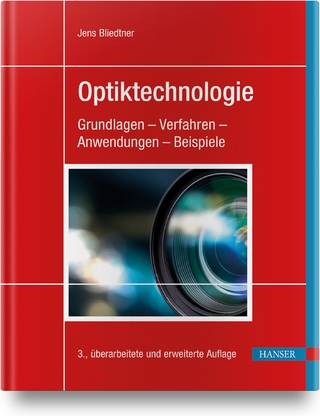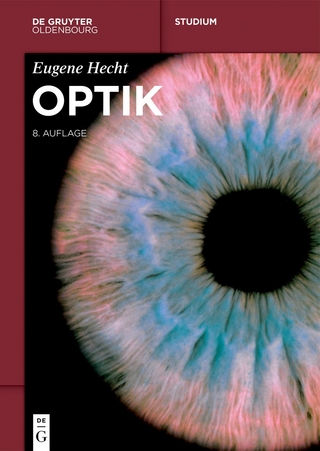
Introduction to Diffraction in Materials Science and Engineering
Seiten
2001
Wiley-Interscience (Verlag)
978-0-471-24724-1 (ISBN)
Wiley-Interscience (Verlag)
978-0-471-24724-1 (ISBN)
This work offers aspects of diffraction applications and includes information on synchrotron and neutron facilities. It also provides pedagogy, including learning objectives, examples, key terms, summaries and problems and contains treatments that suits the needs of students and professionals.
Fundamentals and practical applications of diffraction for researchers, engineers, and students
Materials science relies heavily on diffraction for the analysis of materials. Introduction to Diffraction in Materials Science and Engineering is a survey of the practical aspects of this valuable tool. Though it contains basic discussion of the theory and physics of diffraction, this book emphasizes understanding and the practical application of diffraction in materials science-making it a valuable text and resource for students, professionals, and researchers.
Designed as a teaching and self-study text, this resource begins with a treatment of the fundamentals of crystallography and crystal structure and its importance in diffraction before moving on to cover important aspects of diffraction applications. Numerous examples and problems at the end of each chapter, including critical thinking questions, make this an excellent tool for learning and understanding. The book includes treatments of:
* Basics of crystallography
* Geometrical representation of crystals and reciprocal space
* X-rays and neutrons
* Structure factors and intensity
* Powder diffraction
* Qualitative (Powder Diffraction File) and quantitative phase analysis
* Use of the International Tables for more complex structures and the Reitveld method
* Residual stress
* Introductions to texture, small diffracting units, and long-range order
Aaron Krawitz provides both a practical introduction to diffraction that suits the needs of students and a resource for professionals already at work in materials science or engineering who want to utilize the power of diffraction in the study of materials.
Fundamentals and practical applications of diffraction for researchers, engineers, and students
Materials science relies heavily on diffraction for the analysis of materials. Introduction to Diffraction in Materials Science and Engineering is a survey of the practical aspects of this valuable tool. Though it contains basic discussion of the theory and physics of diffraction, this book emphasizes understanding and the practical application of diffraction in materials science-making it a valuable text and resource for students, professionals, and researchers.
Designed as a teaching and self-study text, this resource begins with a treatment of the fundamentals of crystallography and crystal structure and its importance in diffraction before moving on to cover important aspects of diffraction applications. Numerous examples and problems at the end of each chapter, including critical thinking questions, make this an excellent tool for learning and understanding. The book includes treatments of:
* Basics of crystallography
* Geometrical representation of crystals and reciprocal space
* X-rays and neutrons
* Structure factors and intensity
* Powder diffraction
* Qualitative (Powder Diffraction File) and quantitative phase analysis
* Use of the International Tables for more complex structures and the Reitveld method
* Residual stress
* Introductions to texture, small diffracting units, and long-range order
Aaron Krawitz provides both a practical introduction to diffraction that suits the needs of students and a resource for professionals already at work in materials science or engineering who want to utilize the power of diffraction in the study of materials.
AARON D. KRAWITZ is Professor of Mechanical and Aerospace Engineering at the University of Missouri, Columbia, Missouri.
Preface.
Crystallography.
Geometrical Representation of Crystals.
X-Rays.
Neutrons.
Diffraction.
Diffraction Peak Intensity and Measurement.
Two-Dimensional Recording Methods.
Phase Analysis.
Diffraction from More Complex Structures.
Stress Analysis.
Other Kinds of Materials Characterization Using Diffraction.
Appendix A: Some Crystallographic Relationships.
Appendix B: X-Rays.
Appendix C: Neutrons.
Appendix D: Energies of K Emission Lines.
References.
Index.
| Erscheint lt. Verlag | 25.4.2001 |
|---|---|
| Sprache | englisch |
| Maße | 164 x 241 mm |
| Gewicht | 744 g |
| Einbandart | gebunden |
| Themenwelt | Naturwissenschaften ► Chemie |
| Naturwissenschaften ► Physik / Astronomie ► Optik | |
| Technik ► Maschinenbau | |
| ISBN-10 | 0-471-24724-3 / 0471247243 |
| ISBN-13 | 978-0-471-24724-1 / 9780471247241 |
| Zustand | Neuware |
| Informationen gemäß Produktsicherheitsverordnung (GPSR) | |
| Haben Sie eine Frage zum Produkt? |
Mehr entdecken
aus dem Bereich
aus dem Bereich
Grundlagen - Verfahren - Anwendungen - Beispiele
Buch | Hardcover (2022)
Hanser, Carl (Verlag)
49,99 €
Von Kosmologie über Quantenmechanik zur Festkörperphysik
Buch | Softcover (2023)
De Gruyter Oldenbourg (Verlag)
59,95 €


